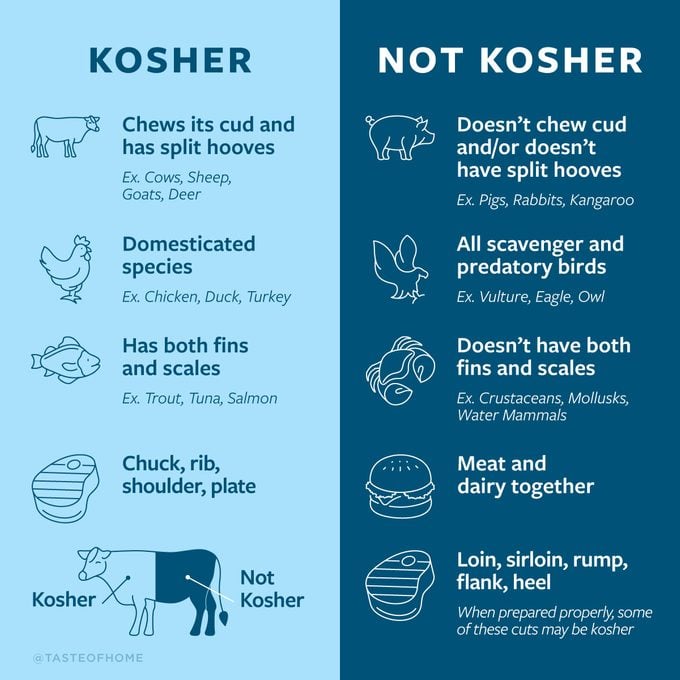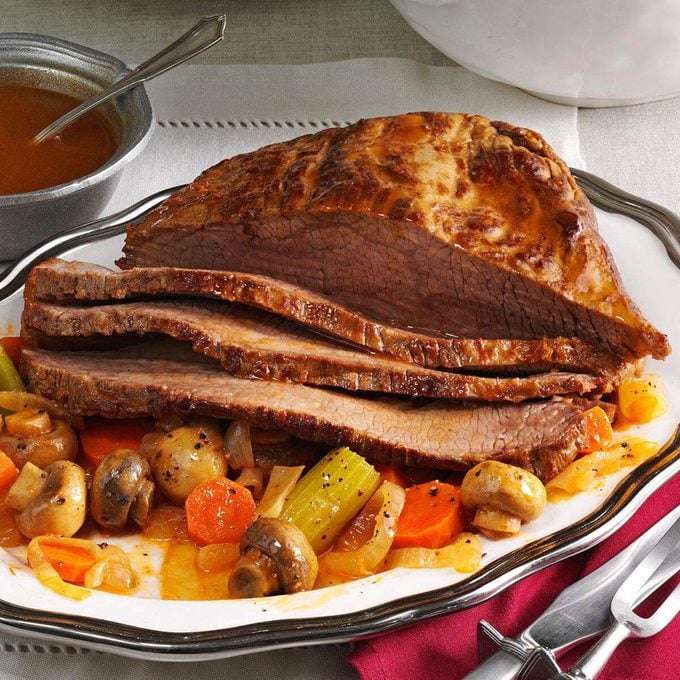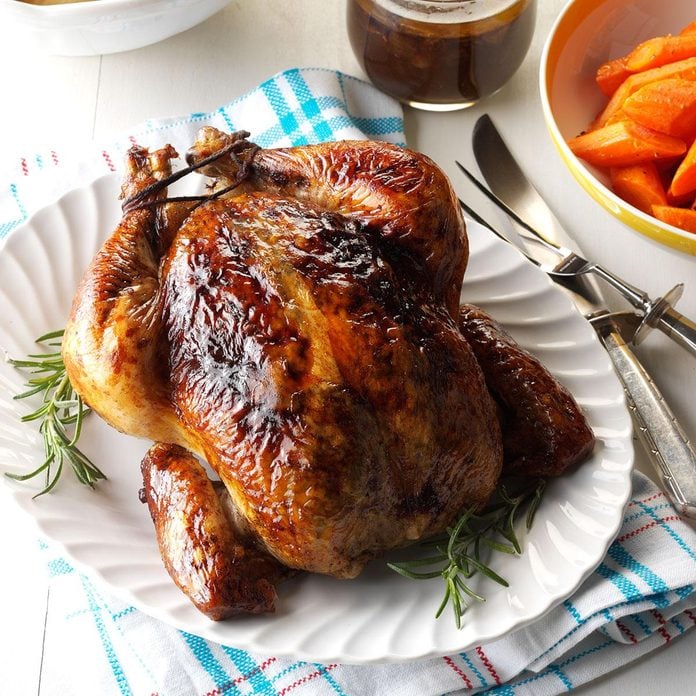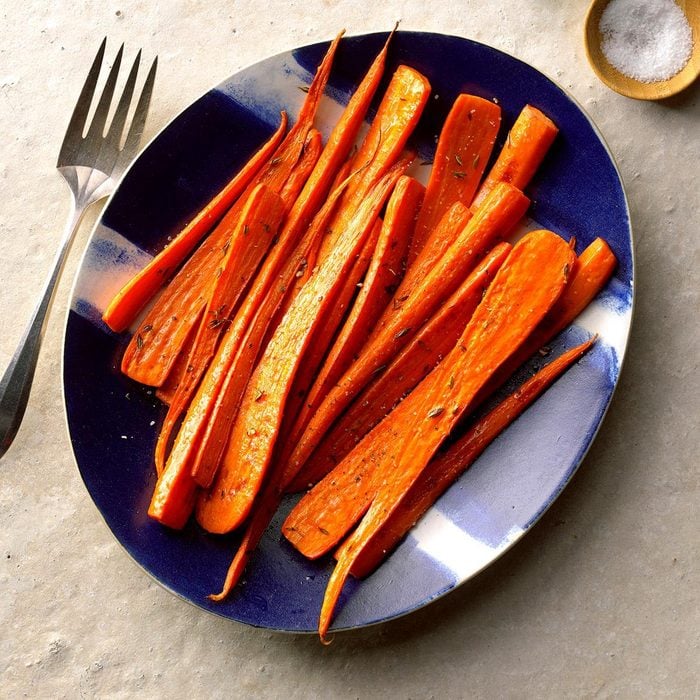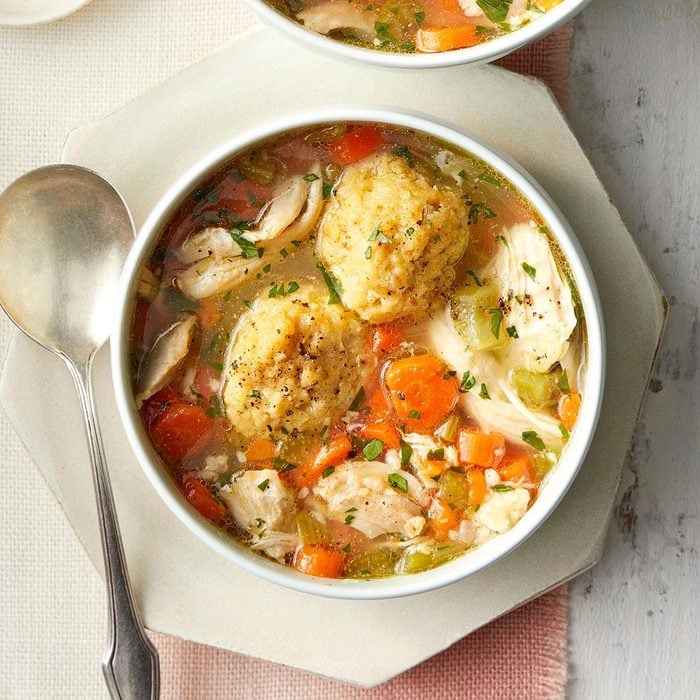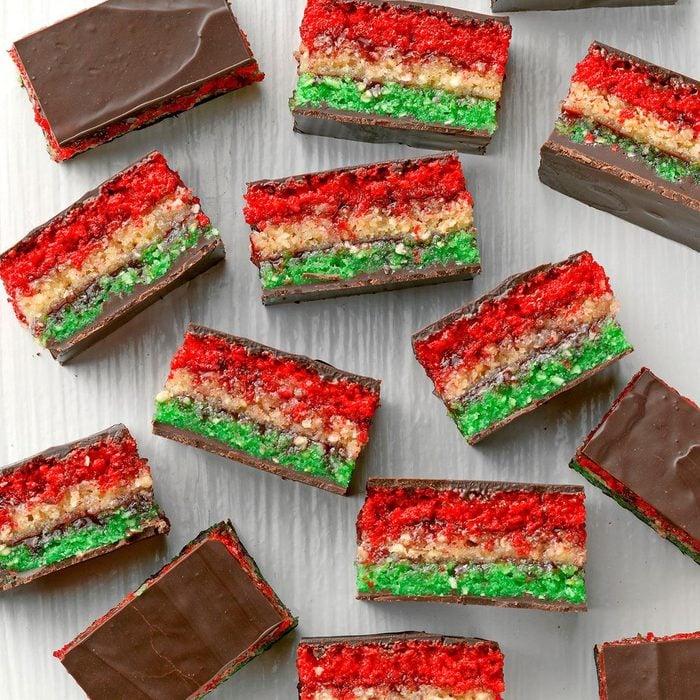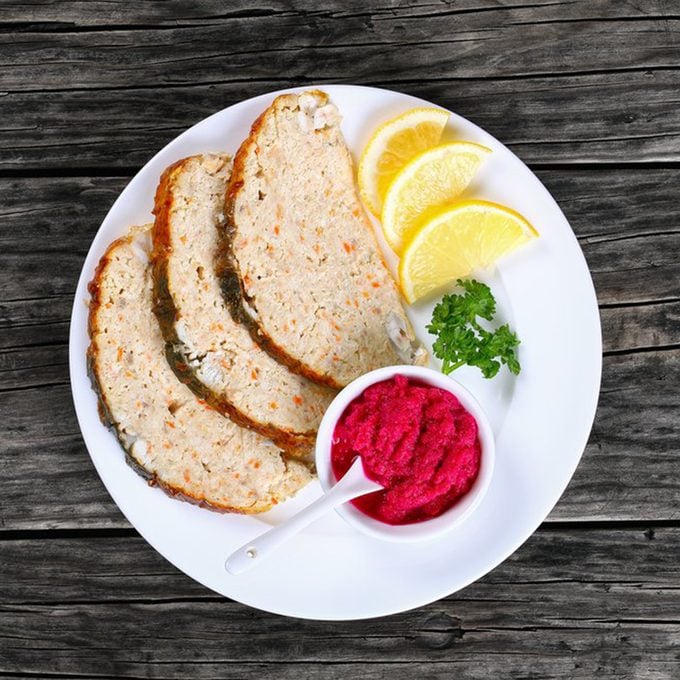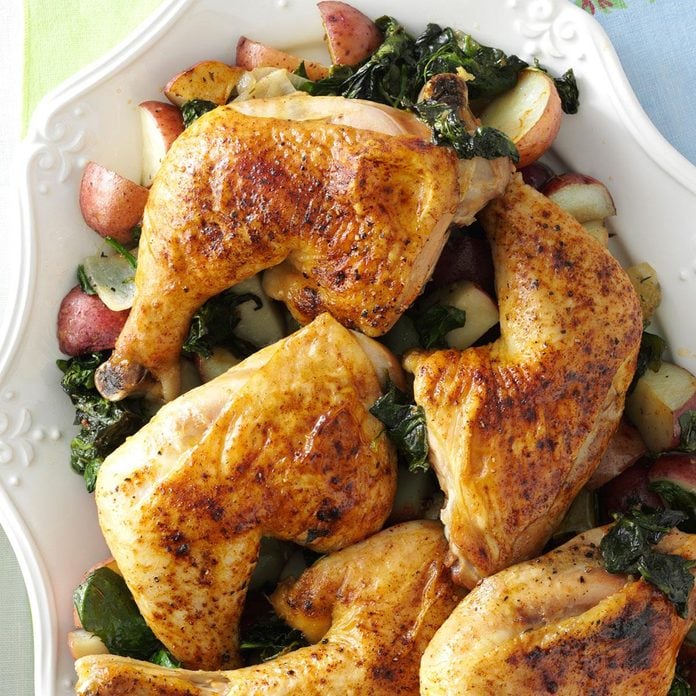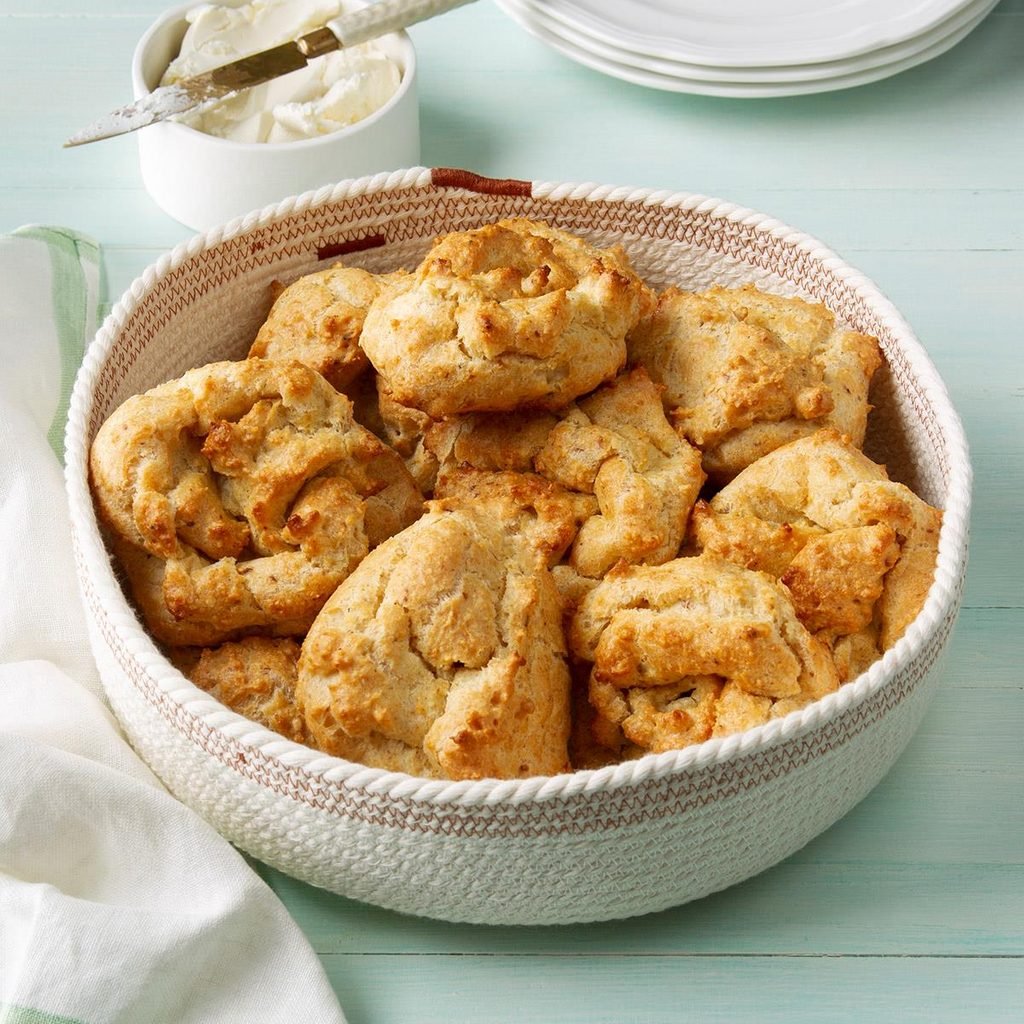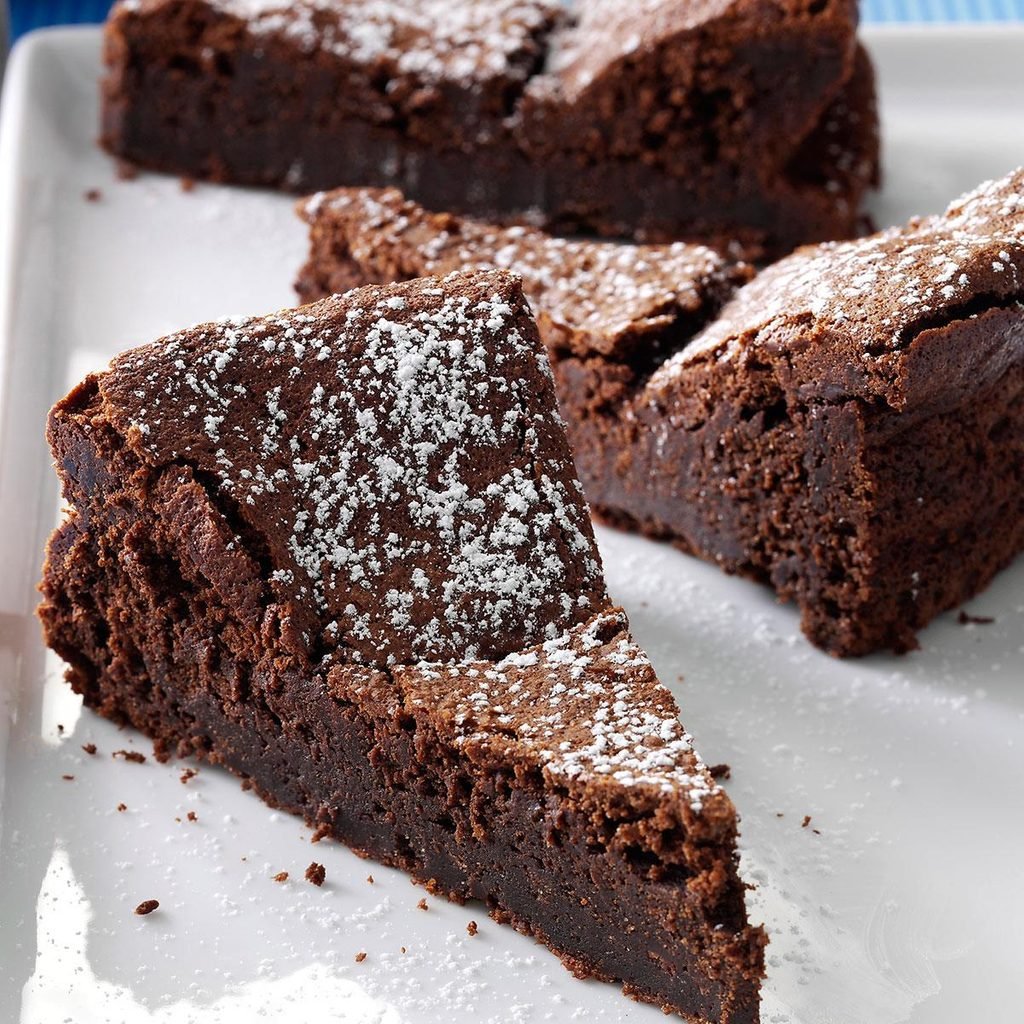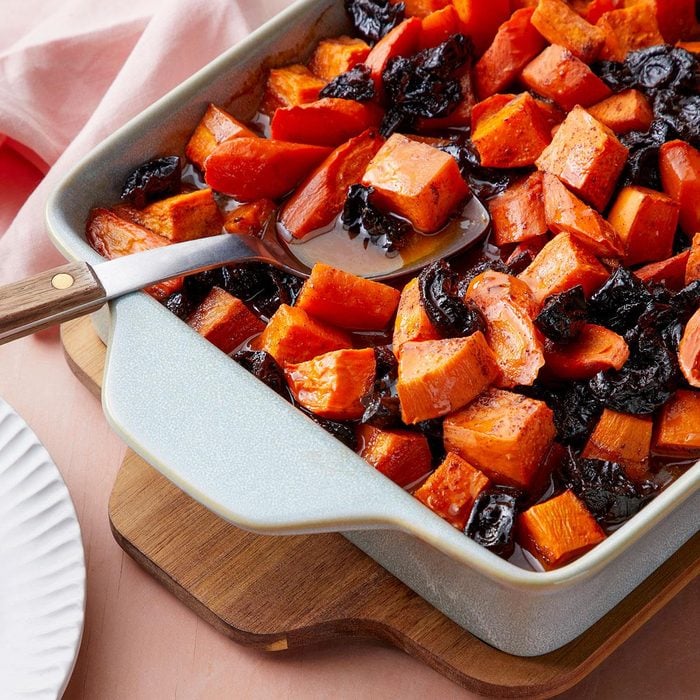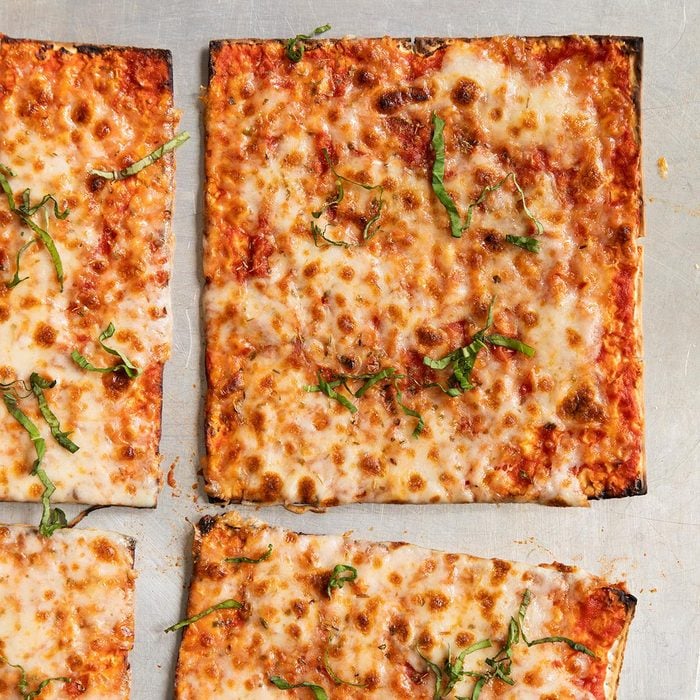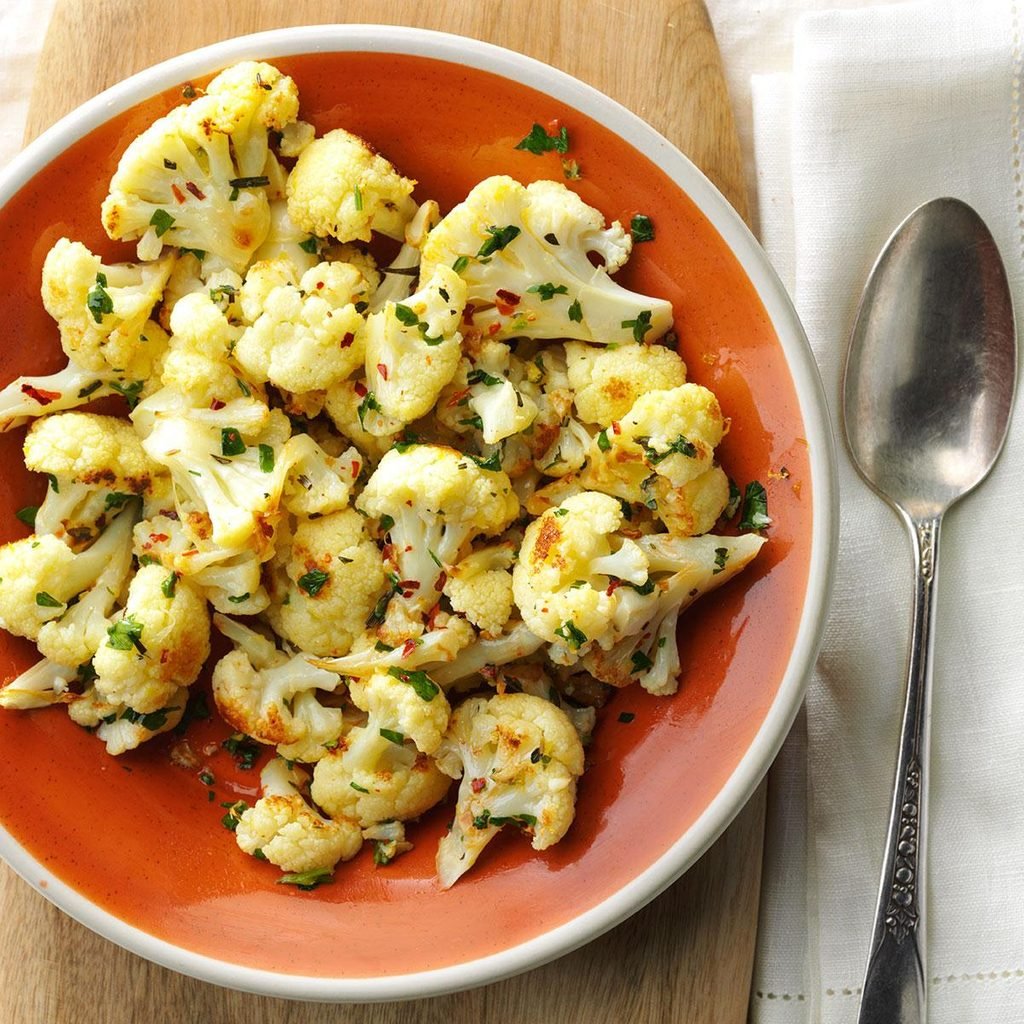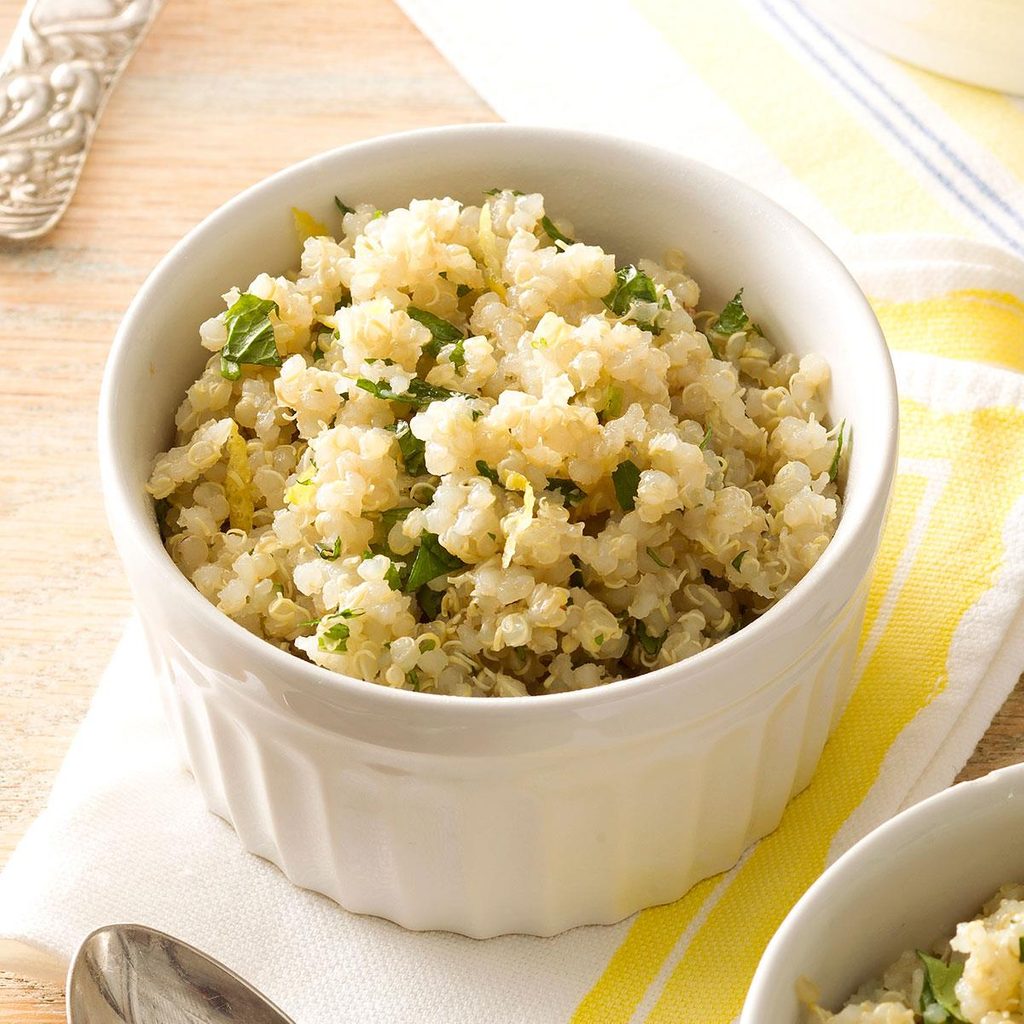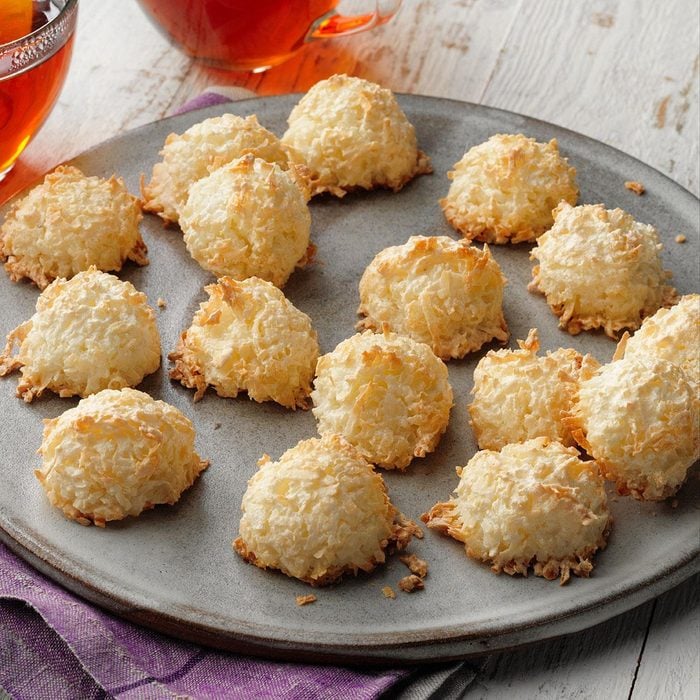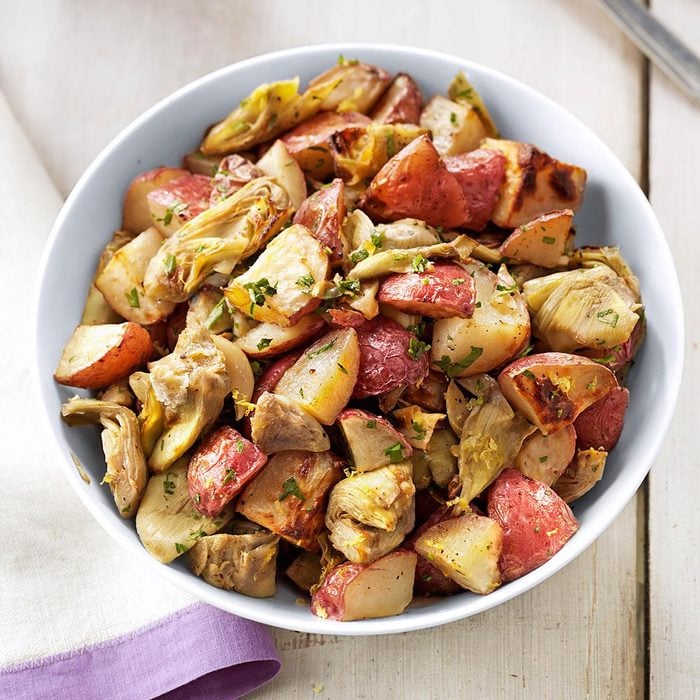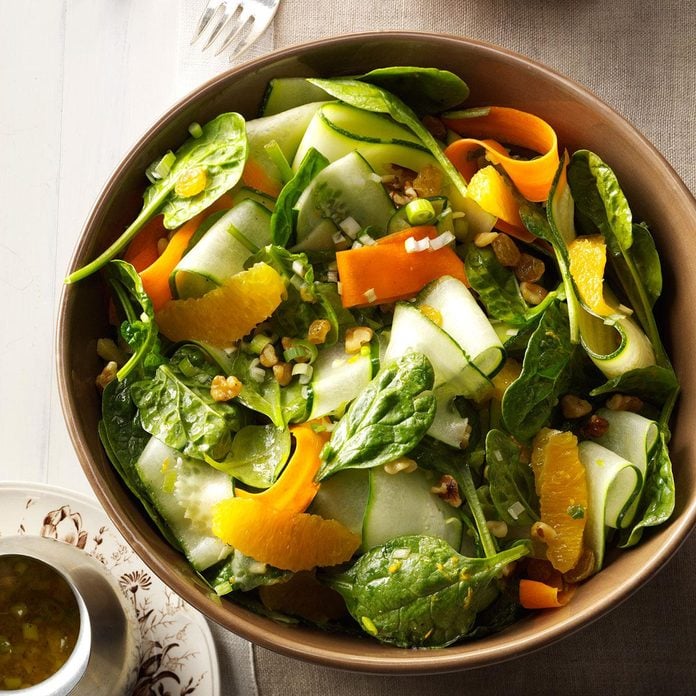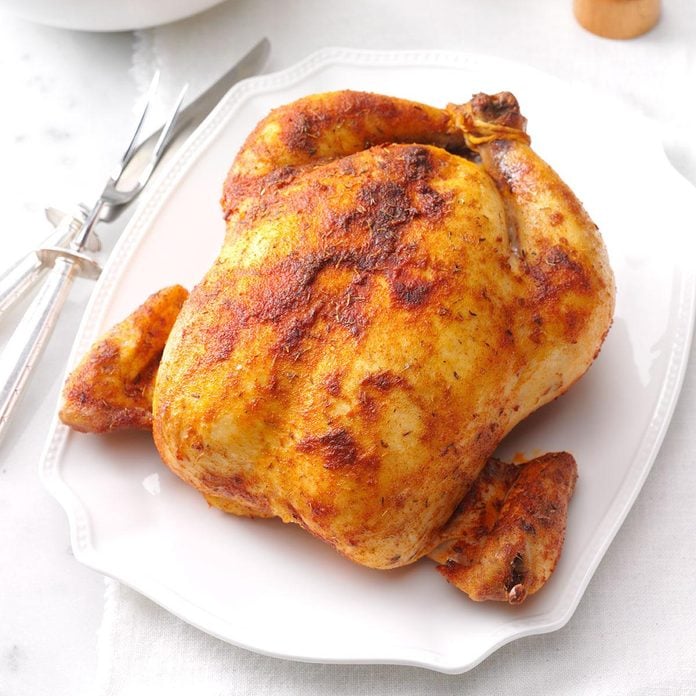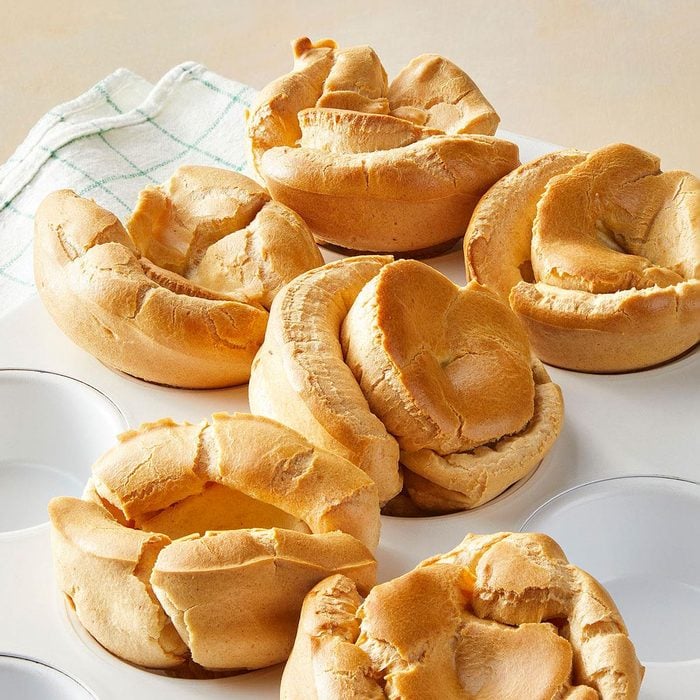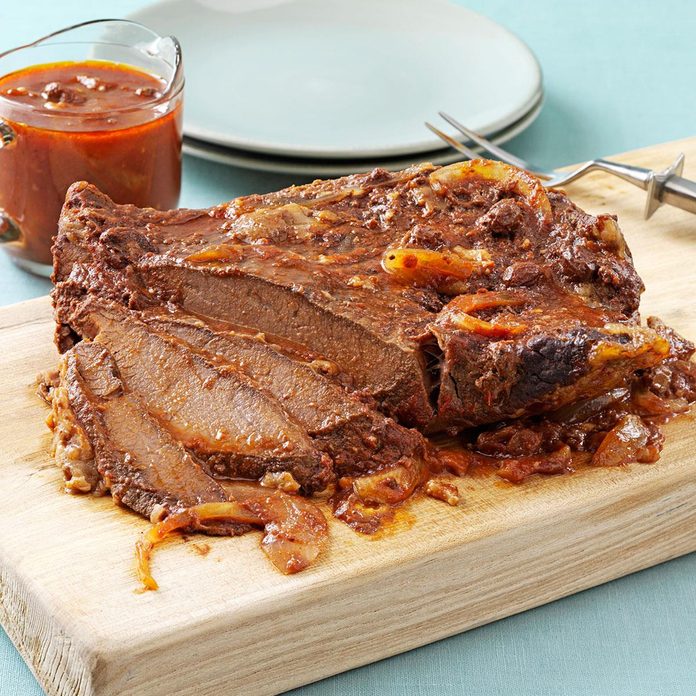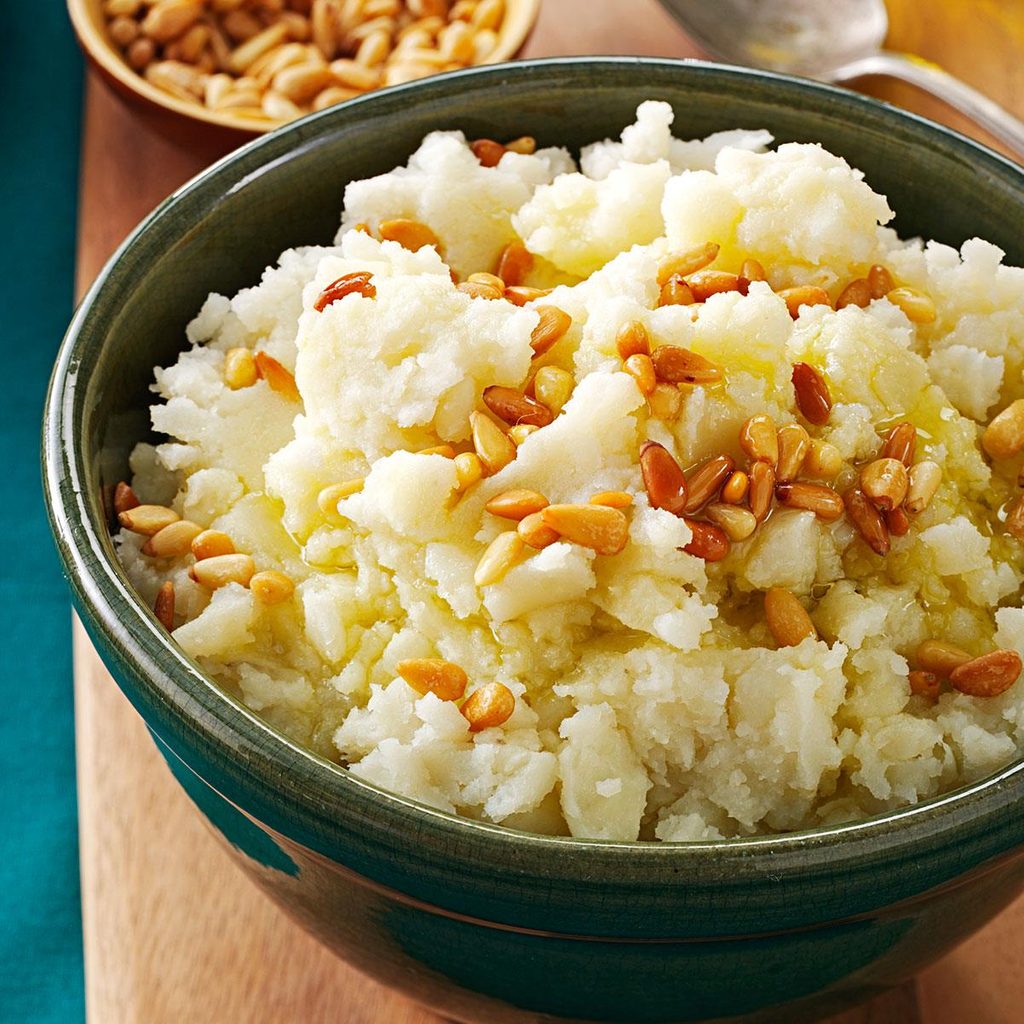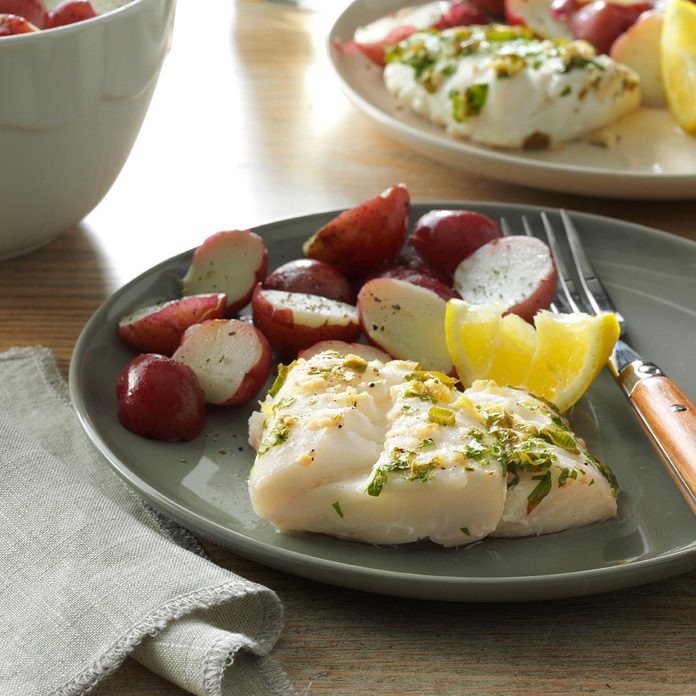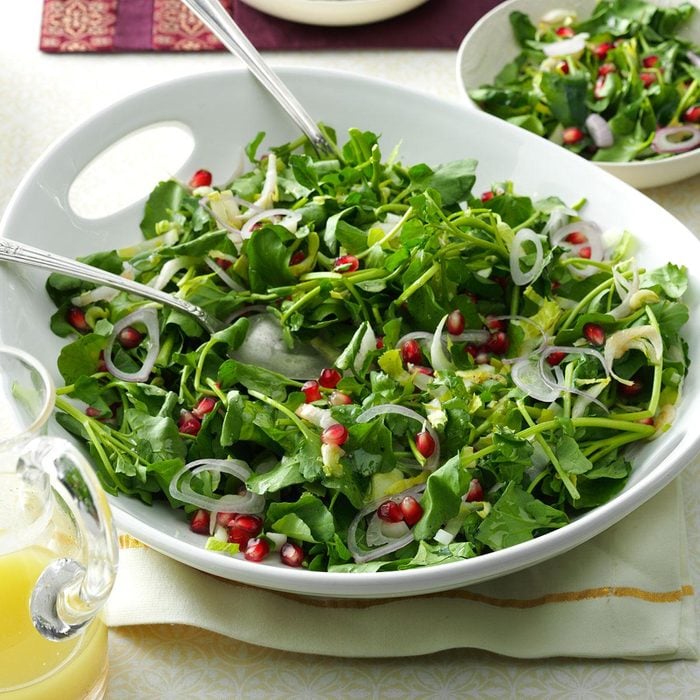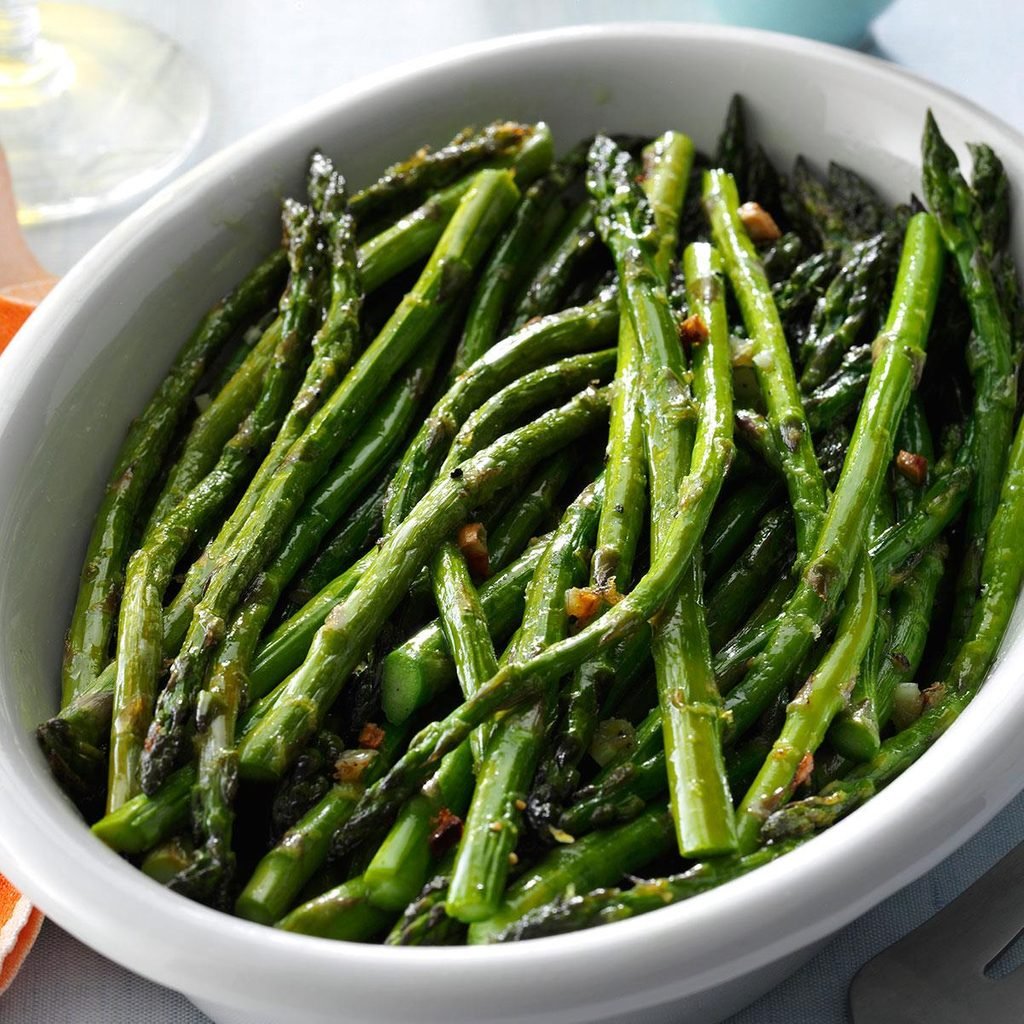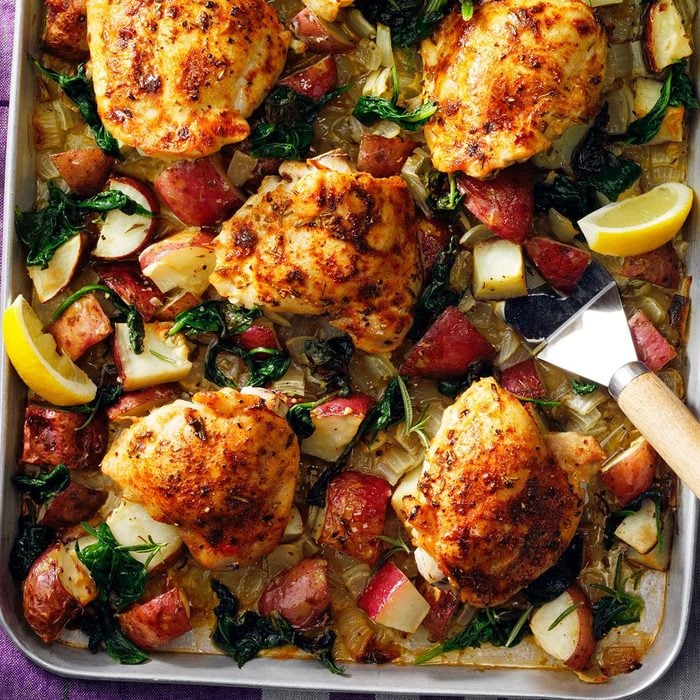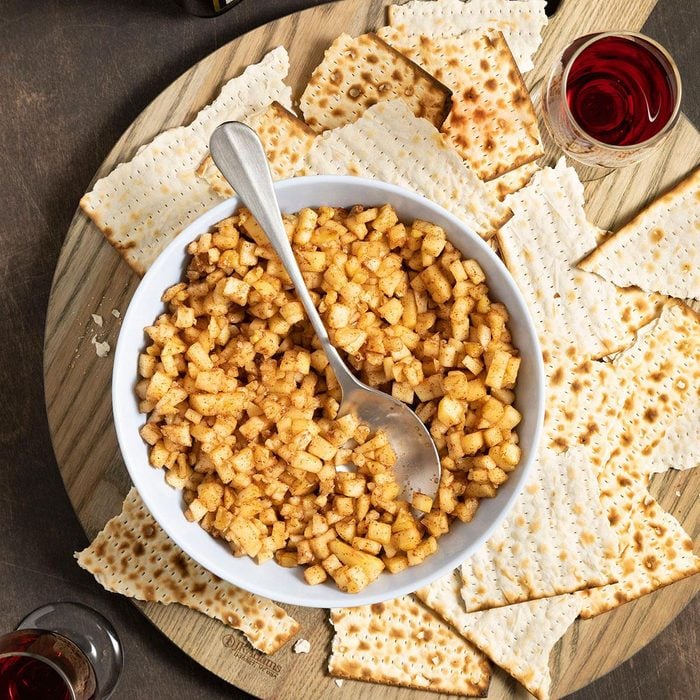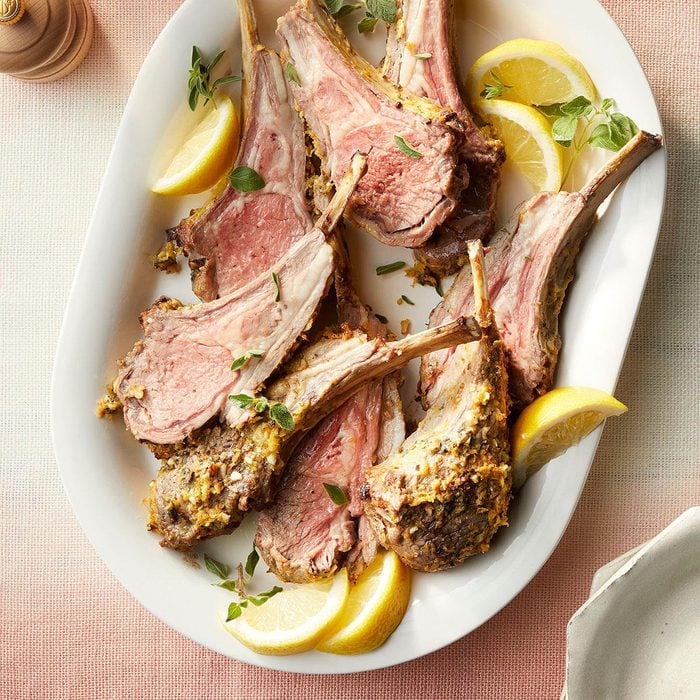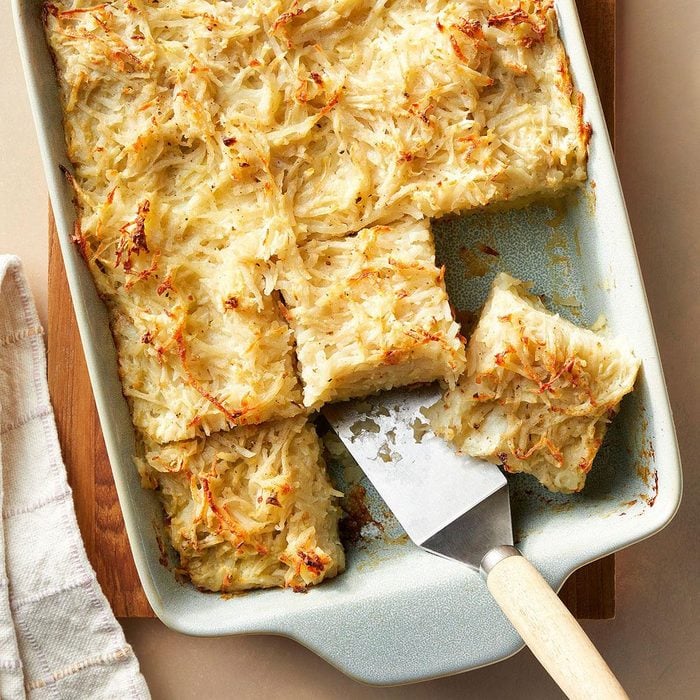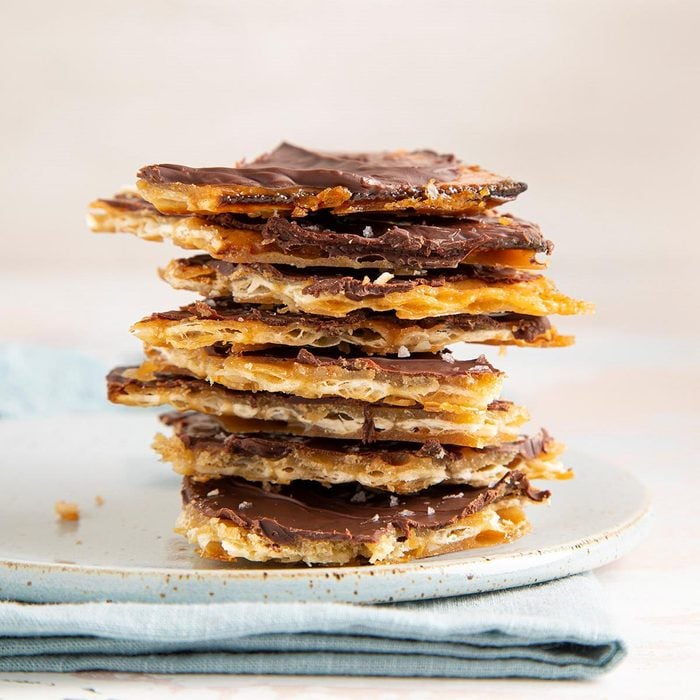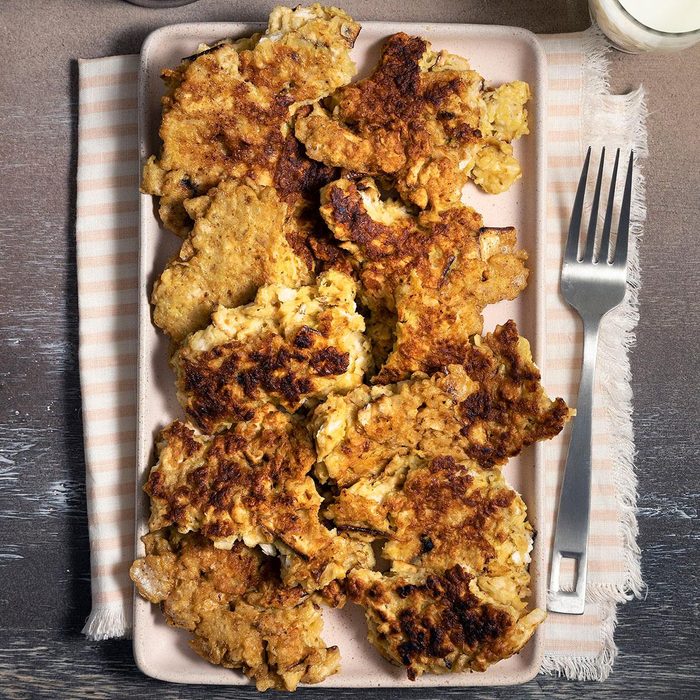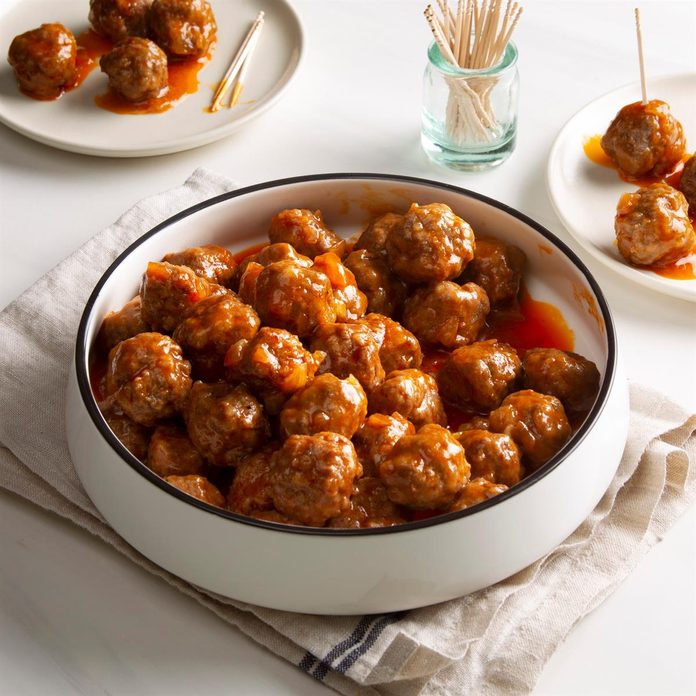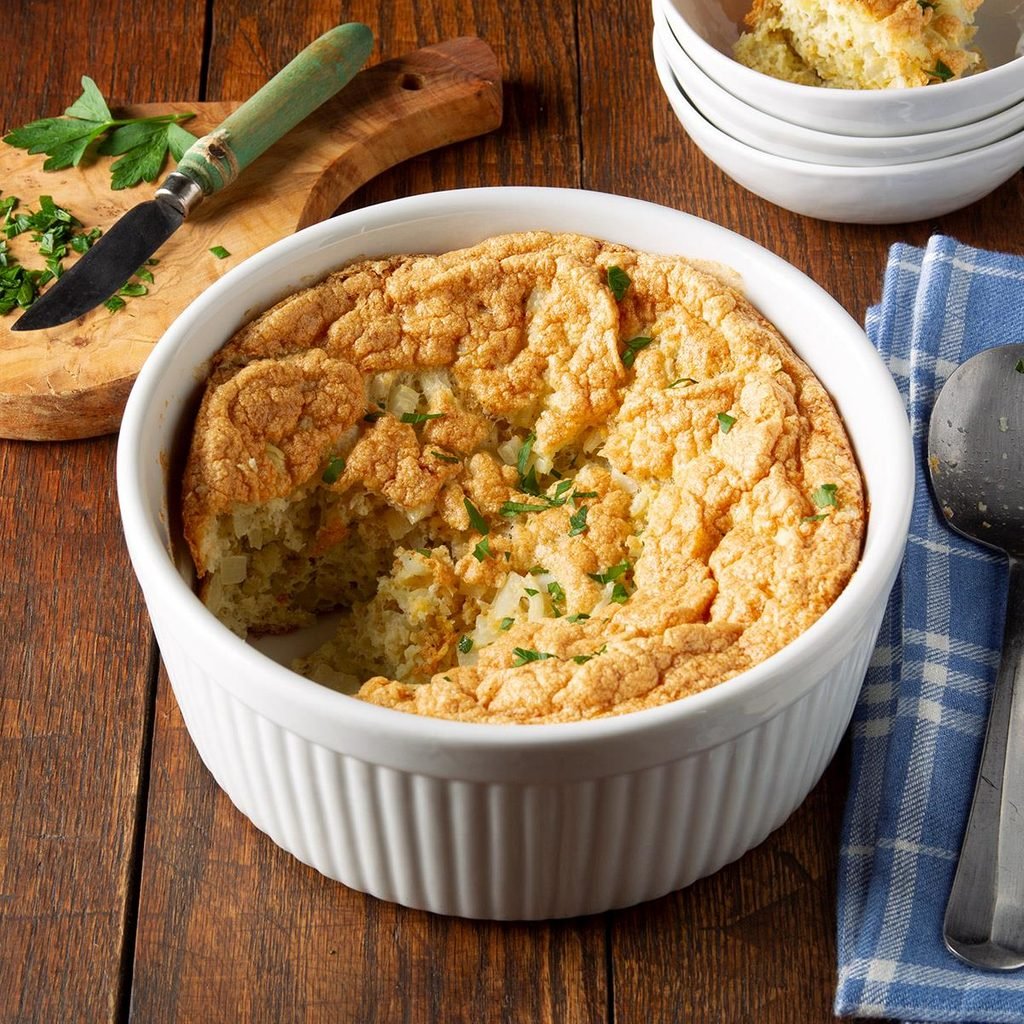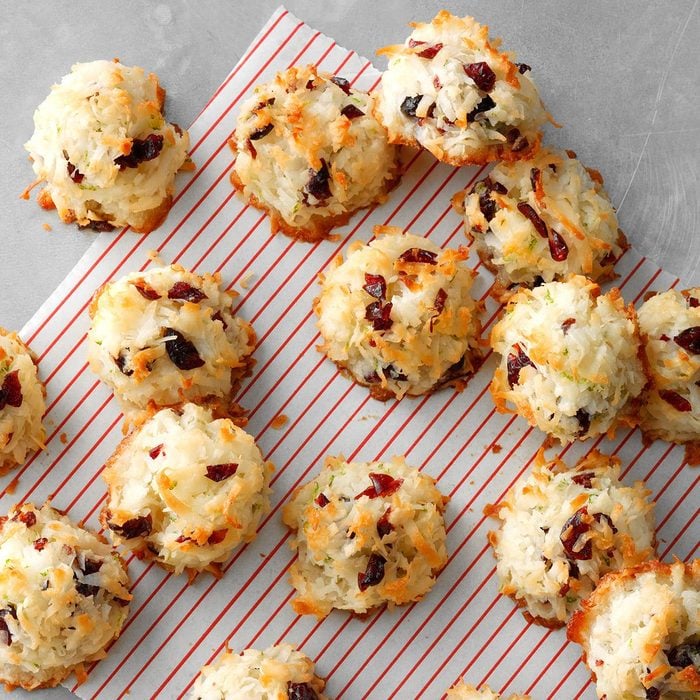Passover Brisket
It doesn't get more traditional than Passover brisket. Making a gigantic brisket might seem intimidating, but it's the easiest way to feed a large crowd. If you have time, make the brisket a day or two ahead of time and let it cool completely in the refrigerator. Cold brisket is much easier to slice than hot brisket.
Go to Recipe
Red Roasted PotatoesSimple herb-roasted potatoes are a welcome addition to any Passover meal, especially when served alongside brisket and jus! The rosemary gives these potatoes a distinct fragrant taste, and the whole dish comes together in under a half hour.
Jewish Chocolate Chip Mandel BreadMandel bread can be made kosher for Passover by substituting matzo meal for the flour. This biscotti-like crispy cookie can be enjoyed with some coffee at the end of the Seder or throughout the week when you're in the mood for a treat. They stay good for two weeks, so no need to worry about them going stale.
Baked Balsamic ChickenThis roast chicken is a nice change of pace from the classic Passover brisket. The
balsamic vinegar adds a savory sweetness to the chicken and helps the skin reach a deep brown color, making it look as good as it tastes.
Roasted Carrots with ThymeThese carrots are sliced lengthwise, then roasted in honey and thyme to make a beautiful vegetarian side dish. They pair well with Passover favorites like matzo ball soup and chicken or brisket. Make them ahead to free up some oven space for a busy Seder night, then serve them room temperature or give them a quick reheat before serving.
Matzo Ball SoupPassover Seder wouldn't be the same without matzo ball soup! To simplify your day-of prep, you can make the soup ahead of time and pre-mix, shape and store the matzo balls in the refrigerator. From there, heat up the soup and cook the matzo balls just before serving.
(
Psst: the secret to making
matzo balls as good as your bubbe's is a splash of seltzer water in the batter.)
Passover Rainbow CookiesThese gorgeous layered cookies are made with almond flour and matzo meal, so they adhere to kosher for Passover rules. Feel free to change up the color of each layer by using different types of food coloring.
Gefilte Fish
Translated from Yiddish, gefilte fish means "stuffed fish." While recipes vary, it's generally made with a combination of fatty fish, lean fish and vegetables, with matzo meal and egg as a binder. It's important to let the fish balls cool down after cooking them, as they're traditionally served cold. Try the gefilte fish with a dollop of
maror.
Get Recipe
Apple Cake for PassoverThis cake is made with potato starch and matzo cake meal instead of flour, so it's kosher for Passover. You should be able to find the finely ground matzo cake meal at the grocery store. If not, measure an extra 2 tablespoons of
matzo meal for every cup and pulse it in a food processor until it resembles all-purpose flour.
Matzo Meal PancakesServe a short stack of matzo meal pancakes with jam or fresh fruit—or top them with butter, syrup and whipped cream.
Roasted Chicken & Red PotatoesWe love a roasted chicken recipe that takes care of the vegetable side dish at the same time the main entree cooks! Using chicken quarters instead of a whole chicken means dark meat only, so make sure to cook the chicken until it reaches an internal temperature of 175°F.
Find more traditional recipes in these
Jewish cookbooks.
Passover RollsThis is one of those Passover recipes that can be used all week long, so don't be afraid make these matzo meal rolls a few times over the holiday. Serve them at dinner with a pat of butter (or
nondairy butter) or enjoy them as sandwich bread. They're particularly good for breakfast with cream cheese and lox.
Roasted RadishesRoasted radishes are great with any holiday dinner, but they pair especially well with brisket or roast
chicken for Passover. Instead of using the olive oil called for in the recipe, try swapping in
schmaltz for an extra flavor boost.
Flourless Chocolate TorteFlourless chocolate cake is a classic Passover dessert. You don't have to make any substitutions since it's inherently kosher for Passover. Plus, it's a great recipe to have under your belt for when you need to make a gluten-free dessert, whether it's Passover or not.
TzimmesThis Jewish stew is rich in color and flavor, and it's a classic accompaniment to Passover or Rosh Hashanah. Between the sweet potatoes, carrots, dried plums, orange juice, honey and brown sugar, this dish is sweet enough that you won't need to serve dessert (but that doesn't mean you can't!).
Matzo PizzaLook for mozzarella cheese that's labeled "kosher for Passover." You can add vegetables like bell peppers or onions to this pizza, but if you're keeping kosher, avoid adding any type of meat as a topping since this pizza has dairy.
Roasted Herb & Lemon CauliflowerRoasted cauliflower is one of our favorite vegetable side dishes because it's easy to make and it can be seasoned in any way to complement your main dish. When using ground spices, remember to look for spices that are specifically certified kosher for Passover.
Lemon Herb QuinoaLeavened grains (wheat, spelt, oats, barley and rye) are a no-go for Passover, but
quinoa is generally accepted for Seder dinner. Though it looks similar to couscous, quinoa is a seed that's a member of the same family as chard and beets.
Passover MacaroonsThese Passover macaroons remind me of the classic grocery store cylinder of macaroons I grew up with, except they're even tastier because they're homemade. You can customize them by drizzling them with melted chocolate, or adding crushed nuts to the top before they've set. They're great to make ahead since they last for up to 5 days.
Garlic and Artichoke Roasted PotatoesArtichokes come into season right around the start of Passover, and they make a wonderful accompaniment to your favorite Passover potato recipe. If you can't find fresh artichokes, don't worry; frozen artichoke hearts work just fine.
Ribbon Salad with Orange VinaigretteThis salad is elegant in its presentation but simple in flavor, featuring light and crisp vegetables dressed in a bright vinaigrette. Use a
vegetable peeler to transform the carrots, cucumber and zucchini into elegant ribbons that elevate this salad to a holiday-worthy side dish.
Savory Rubbed Roast ChickenWho needs a complicated brine or marinade recipe when
dry rubs work just as well? This paprika-based rub is smoky, savory and slightly spicy, infusing the chicken with a ton of flavor in as little as an hour. To increase the flavors, let the rub sit on the chicken for up to 12 hours before roasting.
Passover PopoversTraditional dinner rolls aren't allowed for Seder dinner—Passover recipes must use unleavened grains only—but you won't miss them if you make these matzo cake meal popovers. They puff up and become delightfully crispy as they bake, and all you need to make them is a muffin pan.
Sweet and Sour BrisketJewish brisket is deeply rich and savory, so we love lightening it up with this sweet and sour glaze. The ingredients combine with the brisket juices as it braises in the slow cooker, creating an incredible sauce. If you end up with too much sauce, thicken it with
matzo cake meal to make a savory gravy.
Double-Nut Stuffed FigsIt can be hard to find grain-free Passover recipes for dessert, so it's the perfect opportunity to keep things simple and feature fruit instead of cakes. We like using dried Calimyrna figs here because their large size makes them well-suited for stuffing with the cocoa and nut filling. These
Passover desserts will end your meal on a sweet note.
Roasted Carrots & FennelFennel makes a fantastic addition to Passover dinner because it pairs well with any of the popular main dishes, whether that's beef, chicken, salmon or lamb. The bulb's natural anise flavor softens and mellows as it cooks, taking on a sweet edge that pairs really well with roasted carrots.
Mediterranean Mashed PotatoesMost mashed potato recipes are rich with dairy, so they aren't the best choice for a meat-heavy Seder meal. In this recipe, we use olive oil and lemon juice instead. The oil and citrus dresses the starchy potatoes with the perfect amount of fat and acid to create a creamy consistency without the need for milk.
Lemony Parsley Baked CodFish is considered kosher if it has both fins and scales, making cod a great choice when looking for Passover recipes. Cod is a very lean fish, so it doesn't have a lot of fat to protect it from drying out if it overcooks. We like cooking it at a high temperature in this recipe to keep the fish juicy and moist.
Jeweled Endive SaladJewel-toned pomegranate seeds make this salad shine visually, but it's the combination of watercress and endive that make it a star. The
endives are crisp and bitter while the watercress brings a sharp peppery note, coming together to create a burst of flavor in every bite.
Herb-Roasted Salmon FilletsRoast salmon is simple to make, but these herb-topped fillets look elegant for a holiday dinner. The fish cooks quickly in a high-temperature oven, so you'll want to be sure your
Passover side dishes are almost ready to serve when you start cooking the salmon.
Lemon-Roasted AsparagusSpring asparagus is so flavorful that it doesn't require a lot of seasoning to taste great. Toss it with a little grated lemon zest, garlic, salt and pepper, and this vegetable side dish will pair perfectly with any main you choose to serve at Passover Seder.
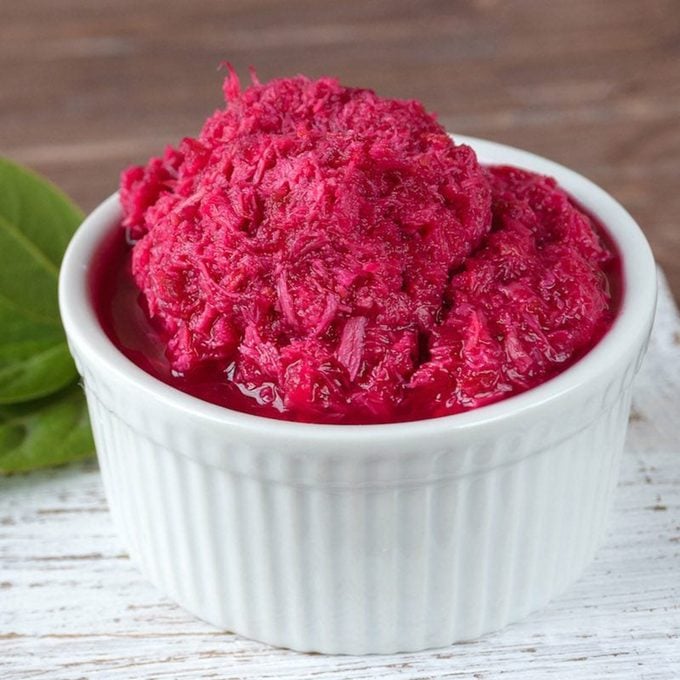 LARYSA LYUNDOVSKA/GETTY IMAGES
LARYSA LYUNDOVSKA/GETTY IMAGES
Maror (or bitter herbs) symbolizes the Jewish peoples' suffering from being enslaved, and it's an essential part of the
Seder plate. The specific bitter vegetable depends on family traditions, but the most commonly used vegetable is
horseradish. For a bright pink version, try making maror with beets.
Go to Recipe
Sheet-Pan Chicken and VegetablesIf you're running short on time, make the main dish and vegetable sides on a single sheet pan. You can use bone-in thighs, chicken quarters, bone-in breasts or a whole cut-up chicken to make this dish. We recommend using chicken on the bone, though, as it turns out juicier than boneless, skinless cuts.
CharosetThis fruit-and-nut blend, which has a spot on the Seder plate, livens up a piece of matzo, though the specific ingredients in charoset varies on
Passover tables around the world. This recipe is made with a chunky blend of apples and walnuts that simmer in wine and cinnamon to create a homey, warming bite.
Mediterranean Rack of LambThe tradition of eating lamb on Passover ended in 70 CE with the destruction of the Temple in Jerusalem, and some Jews don't find it appropriate to serve lamb for Passover dinner. Others deem it acceptable if the lamb is roasted in a pan with liquid. Depending on your family's customs and interpretations of the rules, this bread crumb-free rack of lamb could be perfect as your dinner centerpiece.
Potato KugelNoodle kugel isn't a fit for Passover because the noodles are
chametz, but potato kugel is a perfect addition to the holiday table. This potato kugel recipe uses Russet potatoes, which become soft inside but crisp up to perfection on the top layer.
Chocolate-Covered MatzoIf you've never had chocolate-covered matzo, you're about to fall in love. It tastes similar to chocolate-covered pretzels, with a sweet-and-salty vibe and a perfectly crisp bite. We recommend using unsalted matzo in this recipe, which allows you to control the exact amount of salt.
Matzo BreiThis eggy dish is traditionally served for Passover breakfast or brunch. You can make the matzo brei sweet or savory: For a sweet dish, add cinnamon and sugar to the egg mixture and serve it with applesauce or jam. For a more savory spin, add onions, garlic and peppers to the egg and top the matzo brei with green onions and sour cream.
Passover MeatballsSkip the breadcrumbs and use matzo meal to create Passover-friendly meatballs. Be sure to purchase kosher ground beef if you're making a kosher meal.
Onion KugelPotatoes aren't the only noodle-free version of kugel! This recipe is similar to a
souffle, where the eggs are separated and the whites are beaten until stiff peaks form. That causes the kugel to puff up as it bakes, so the dish looks impressive and tastes light and airy.
Cranberry Lime MacaroonsThis sweet treat is the perfect Passover recipe to end a fantastic meal. The macaroons are chewy and light, and the cranberries add color and sweet flavor. Once cooled, you can freeze these macaroons in an airtight container for later. Just let them come to room temp on the counter before serving.
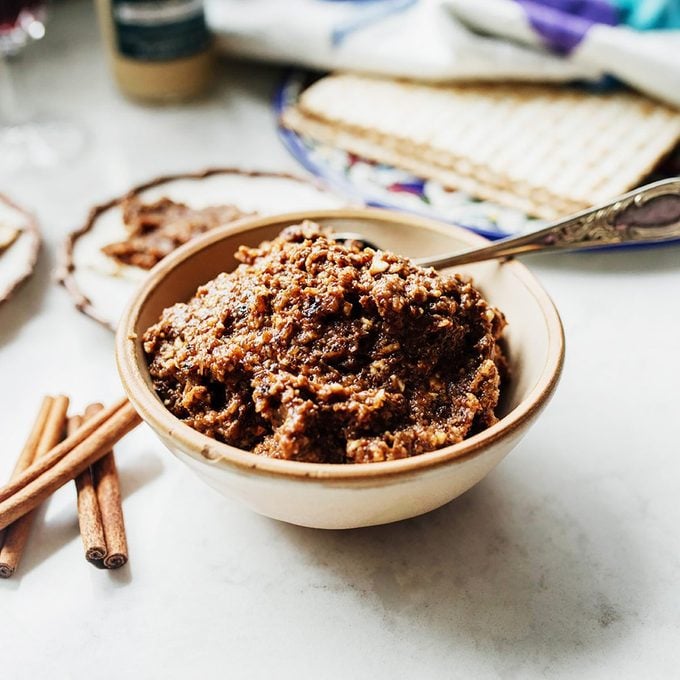 JAMIE THROWER FOR TASTE OF HOME
JAMIE THROWER FOR TASTE OF HOME
Unlike Ashkenazi charoset made with apples, walnuts and wine, Sephardic charoset is made with dates, raisins and apricots. It resembles more of a paste than a jam, and it tastes delicious when spread on a piece of matzo.
Go to Recipe


